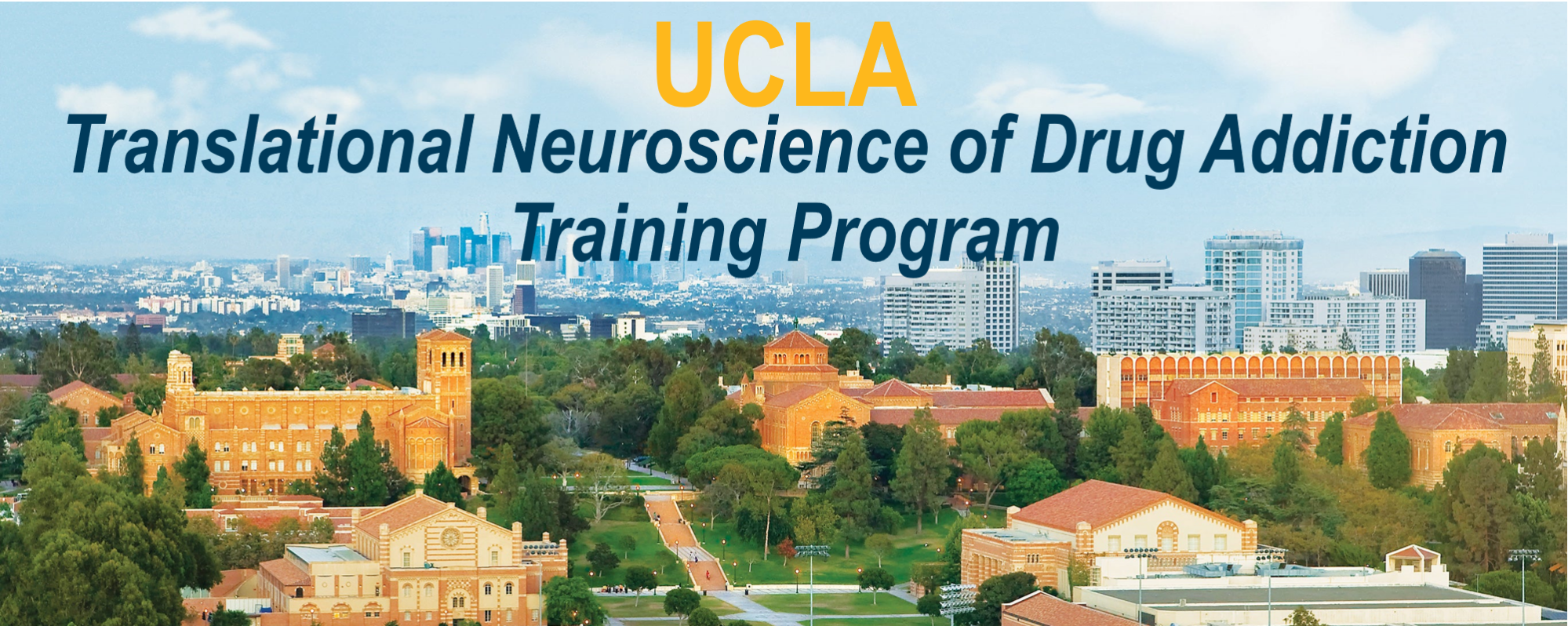Applications are currently being accepted for the 2025/2026 academic year. Earliest appointment date is 07/01/2024. The application deadline is May 16th 2025 at 5PM PST
We encourage applications from all.
Applications must be submitted as a single PDF to this Box upload link. Letters of recommendation can be combined in this single PDF or uploaded separately as long as they are clearly labelled. All materials, including letters of recommendation, must be received by the deadline.
Predoctoral applicants
Qualified Applicants Must Meet the Following Criteria:
A) In pursuit of a Ph.D. in neuroscience, biological science, psychology, pharmacology or related field of study under the supervision of a member of the TNDA Faculty. Should your mentor not be listed, contact the program administrator or directors.
Applicants must select a mentor within their area of addiction-related research. Applicants are strongly encouraged to contact potential faculty members as soon as possible. It is the applicant’s responsibility to initiate communication, discuss their research proposal, and obtain the mentor’s approval to conduct their proposed work within the their UCLA laboratory.
B) Committed to the study of drug addiction.
C) A US citizen, have non-citizen nationality or permanent residency (to be considered for NIH funding). Non-citizen nationals are persons born in US outlying possessions (American Samoa and Swains Island).
D) Not received more than 5 years of aggregate NRSA support at the predoctoral level (any combination of individual & institutional awards).
E) Commitment to fully participate in the TNDA program for at least 2 years.
Predoctoral application requirements:
- CV
- Self-Statement: (maximum of 3 pages, single spaced, 11-point arial font, .5 inch margins). Please highlight your research/education accomplishments and provide background information relevant to your interest in drug addiction research. Briefly describe your goals and your commitment to remain in the TNDA program for at least 2 years. Please also include a description of your proposed research project including aims, hypothesis, methods, potential outcomes, and significance. Current fellows applying for renewal should submit a progress statement on their research project and achievements throughout the past year, and future directions for their research project should they be awarded a second year of funding. References not count toward the 3-page limit.
- Mentor letter of support: Letter of recommendation and support from your TNDA Faculty. This letter must include an individualized training plan, information about mentor funding for the project and a commitment to participate in the TNDA program and mentoring requirements.
- Letter of recommendation: You may also include a letter of recommendation from someone who is able to comment on your experience and potential.
- Information sheet:
Postdoctoral applicants
Qualified Applicants Must Meet the Following Criteria:
A) Obtain a doctoral degree, (M.D. or Ph.D. in neuroscience, biological science, psychology, pharmacology or other related fields of study) at the time of appointment. A pending degree is acceptable to apply; degree confirmation is required at the time of official appointment.
B) Have a commitment to the study of drug addiction.
C) Have identified a member from the TNDA Faculty. Should your mentor not be listed, contact the program administrator or directors.
D) Be a US citizen, non‐citizen national or permanent resident (Non-citizen national is a person born in the U.S. outlying possessions (American Samoa and Swains Islands).
E) Not received more than 3 years of aggregate NRSA support at the postdoctoral level (any combination of individual & institutional awards).
F) Commitment to fully participate in the TNDA program for at least 2 years.
Postdoctoral application requirements:
- CV
- Self-Statement: (maximum of 3 pages, single spaced, 11-point arial font, .5 inch margins). Please highlight your research/education accomplishments and provide background information relevant to your interest in drug addiction research. Briefly describe your goals and your commitment to remain in the TNDA program for at least 2 Please also include a description of your proposed research project including aims, hypothesis, methods, potential outcomes, and significance. Current fellows applying for renewal should submit a progress statement on their research project and achievements throughout the past year, and future directions for their research project should they be awarded a second year of funding. References not count toward the 3-page limit.
- Mentor letter of support: Letter of recommendation and support from your TNDA Faculty. This letter must include an individualized training plan, information about mentor funding for the project and a commitment to participate in the TNDA program and mentoring requirements.
- Letter of recommendation: You may also include a letter of recommendation from someone who is able to comment on your experience and potential.
- Information sheet:
